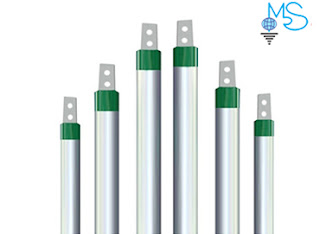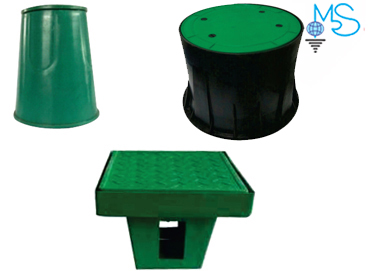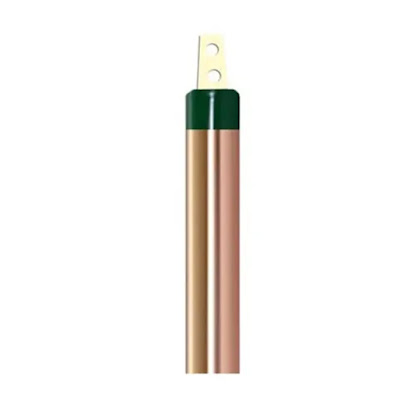Chemical Pipe Earthing Electrode: Ensuring Effective Grounding for Electrical Systems
Introduction
In today's environment, where electrical systems serve as the
backbone of our contemporary infrastructure, correct grounding is critical. The
chemical
pipe earthing electrode is a critical component of an effective grounding
system. We will go into the realm of chemical pipe earthing electrodes in this
detailed tutorial, exploring their significance, and benefits. Let us begin on
this illuminating trip to obtain a better knowledge of this critical component.
What is a Chemical Pipe Earthing Electrode?
A chemical pipe earthing electrode is a grounding device used to
establish a connection between an electrical system and the earth. It is made
up of a pipe made of copper or galvanized steel that is filled with a
conductive concoction of chemical substances. The electrical current can safely
dissipate into the earth because the pipe is buried a long way beneath the
surface. In order to ensure effective grounding, the chemical compound inside the
pipe improves conductivity.
How Does a Chemical Pipe Earthing Electrode Work?
The chemical pipe earthing electrode offers a low-resistance
connection for the fault current to pass into the ground in the event of an
electrical fault or surge. The conductivity is improved and the resistance is
reduced by the conductive chemical combination inside the pipe. As a result,
the fault current is quickly dissipated, protecting the electrical system from
harm and guaranteeing the safety of both people and machinery.
Advantages of Chemical Pipe Earthing
Electrode
Chemical pipe earthing electrodes offer several advantages over
traditional earthing systems. Let's explore some of the key benefits:
Low
Resistance: The chemical compound inside the electrode reduces the
resistance, allowing for efficient dissipation of fault currents.
Longevity: Chemical
pipe earthing electrodes have a longer lifespan compared to conventional
electrodes. The conductive compound protects the electrode from corrosion,
ensuring its durability.
High
Conductivity: The conductive mixture inside the pipe enhances the overall
conductivity of the electrode, ensuring a reliable and efficient grounding
system.
Suitability
for Various Soil Conditions: Chemical pipe earthing electrodes are
suitable for a wide range of soil conditions, including rocky and highly resistive
soil. This makes them a versatile choice for different installation scenarios.
Space
Efficiency: Chemical pipe earthing electrodes require relatively less space
compared to other types of grounding systems. This is particularly beneficial
in areas where space is limited.
Easy
Installation: The installation process of chemical pipe earthing electrodes is
relatively straightforward, making them a convenient choice for both
residential and industrial applications.




Comments
Post a Comment